OBITUARY: Attahiru, the eloquent and gallant army chief who died just four months in office
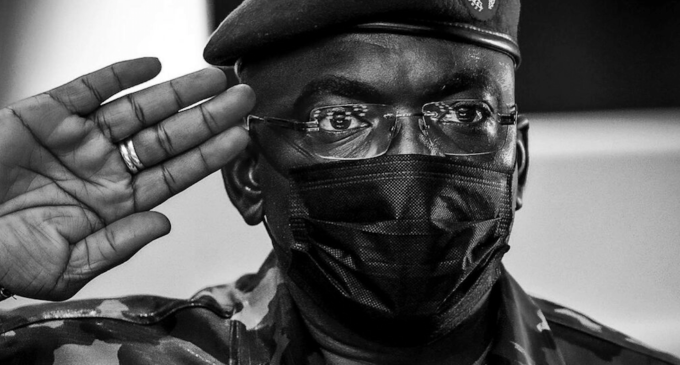
Conversations were still milling around the death of Abubakar Shekau, the dreaded Boko Haram leader who was reportedly killed on Wednesday by ISWAP, when suddenly Nigerians were hit by the news of a plane crash that claimed the life of Ibrahim Attahiru, a three-star general and the commander of the largest component of the armed forces.
Standing tall and always appearing combat ready, Attahiru, in the past five years had been active in the fight against Boko Haram, a group that has terrorised the north-east for more than a decade. Upon his appointment as army chief in January, he continued to visit troops at the frontline every month before his death.
Attahiru was flying alongside 10 officers from Abuja to Kaduna on Friday evening when the aircraft, belonging to the Nigerian Air Force crashed near Kaduna International Airport.
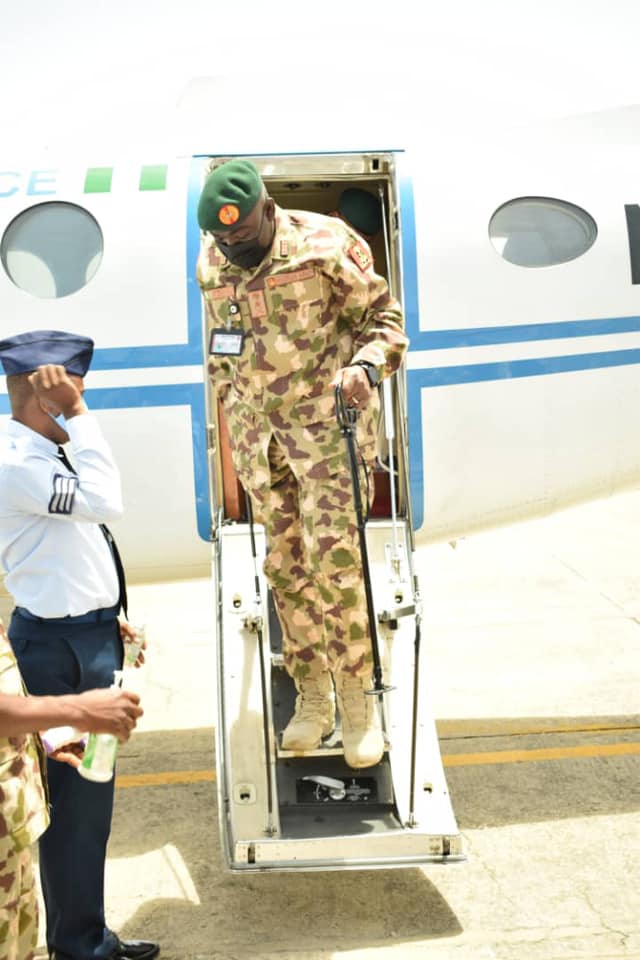
While the accident investigation board (AIB) has been asked to investigate the cause, military authorities believe the incident was caused by “inclement weather”.
Weeks into his appointment, the general immediately stood out from other service chiefs as he appeared determined in his efforts to secure the territorial integrity of Nigeria. He was clear about his plans and was already putting things in place to ensure results.
TOOK OVER THE ARMY AT A CRITICAL PERIOD
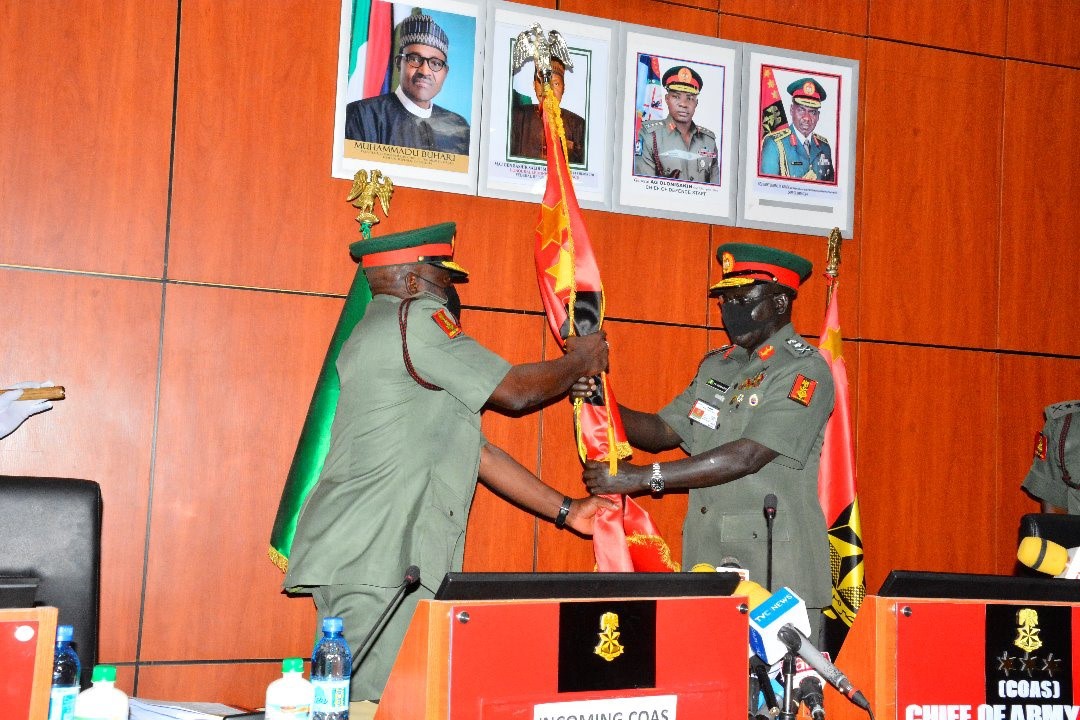
Taking over from Buratai
Prior to his appointment, many officers and soldiers seemed to be losing interest in the war against Boko Haram under Tukur Buratai, his predecessor who had spent more time in office than statutorily required. Attahiru, upon resumption of office, quickly effected a change in formations and began winning the interest of his officers and soldiers.
While some of his men did not agree with his plans, some others believe they were good plans which will put the army on the right path.
“Every chief comes with its own goals and plans, but beyond putting it on paper, Attahiru had started making the moves,” said a senior officer in the army headquarters.
For years, a larger part of the army’s resources had been deployed in fighting Boko Haram, but Attahiru now had to also deal with bandits in the north-west, parts of the north-central, and kidnappers across the south.
“I and my colleagues took over command of our respective services at a very critical period due to daunting security challenges,” he had said in March.
“In line with President Muhammadu Buhari’s directives and my intent to rebuild the Nigerian army into a formidable force, I conceived the vision of having ‘A Nigerian army that is repositioned to professionally defeat all adversaries in a joint environment.’”
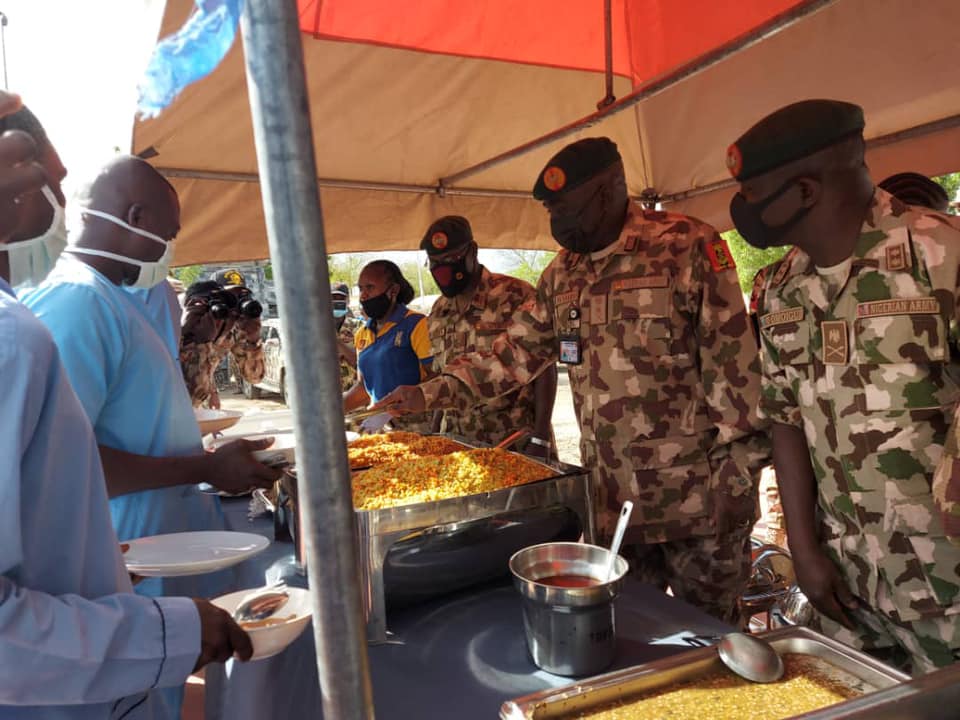
Attahiru serving frontline troops in Borno during the last Eid celebrations
To breathe life into this vision, he released his command philosophy which has readiness, capacity, continuous leadership development and duty to control as cardinal pillars.
He had promised to build on the dependability of the Nigerian Army to accomplish any mission in line with the norms enshrined in army’s values and ethics.
Under his watch, he had said, the army would remain resolute in decisively dealing with threats against Nigeria.
”As I speak, we will soon be receiving combat enablers that would enhance and boost our operations. Concerted effort is also being made to eliminate the threat of improvised explosives devices which has been a major impediment to troops and operations in operation Lafiya Dole,” he said.
Owing to the unending complaints of lack of equipement from troops at the frontline, the new army chief immediately approved the purchase of spare parts and directed all damaged and serviceable equipment in the theatre to be back-loaded for immediate repairs.
He assured his men of his determination “to rebuild the fighting skills, capacity, confidence and morale of the troops”.
48 HOURS ULTIMATUM TO RECAPTURE AREAS HELD BY BOKO HARAM
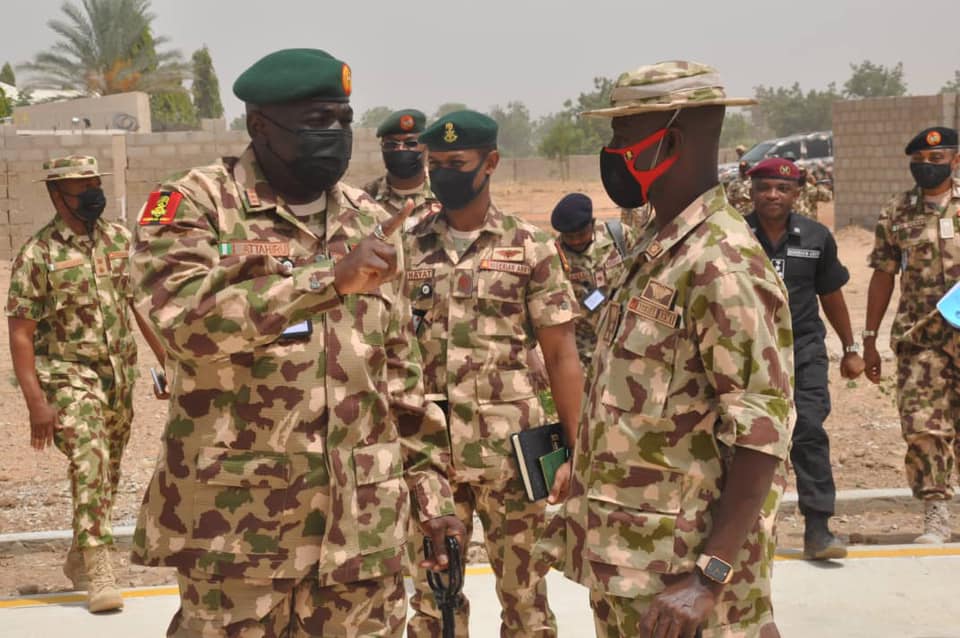
As if there was a plot by Boko Haram to check the strength of the new army chief, there was a series of attacks on some communities in the north-east by the insurgents, coming barely a month after Attahiru had settled into office.
But while on an operational visit to Dikwa, Borno state in February, Attahiru charged the troops to go after the insurgents and recapture areas held by them.
Giving a 48-hour ultimatum, the army chief also assured the troops of improved equipment in getting the task done.
“It is now high time we get back and fight through and support our forces ahead of you,” he had said.
“Areas around Marte, Chikingudo, Kirenowa, up to Kirta, Wulgo must be cleared in the next 48 hours. Be rest assured of all the support required in this very onerous task.
“I have just spoken to the theatre commander, and the general officer commanding 7 division, you must not let this nation down. Go back and do the needful and I will be right behind you.
“You are aware of the recent attack on Dikwa and Marte, you should not allow this to happen again, go after them and clear these bastards.”
Indeed, after the ultimatum, the listed communities were recaptured by the army.
KILLED FIVE BOKO HARAM COMMANDERS
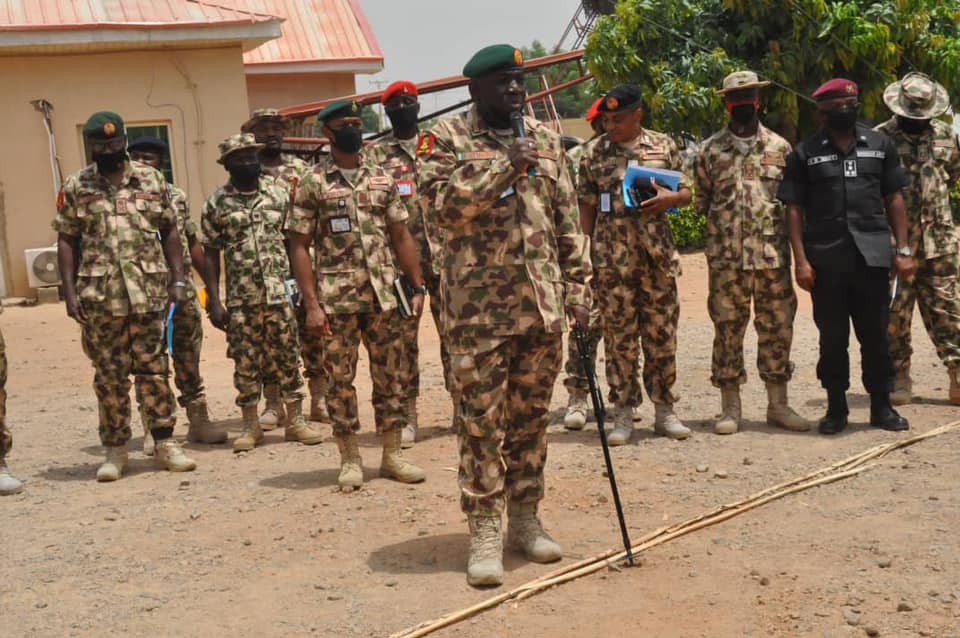
Although the task for Attahiru In 2017, when he was theatre commander of Operation Lafiya Dole was to capture Shekau, he was only able to kill five other commanders of the sect before his redeployment.
Buratai, the immediate past army chief, had given Attahiru a 40-day ultimatum to capture Shekau.
In his valedictory speech at the operation, Attahiru, however, said his team killed five Boko Haram commanders and neutralised 70 terrorists while he was at the helm.
“Suffice to note that during the operations, 5 high profile BHT commanders and many foot soldiers were killed, while many other members of the group surrendered owing to the effectiveness of the operations,” he had said in December 2017.
“None kinetic operations were also conducted through coordinated media and information operations that led to the surrender of 72 BHT, who were immediately inducted into Operation SAFE CORRIDOR.
“Furthermore, operational support was also provided to troops of Multinational Joint Task Force (MNJTF) during Operation RAWAN KADA in June 2017, which led to the killing of over 70 BHT and the capture of assorted automatic weapons.”
ASKED FOR A PROBE OF ARMS PURCHASE DEAL
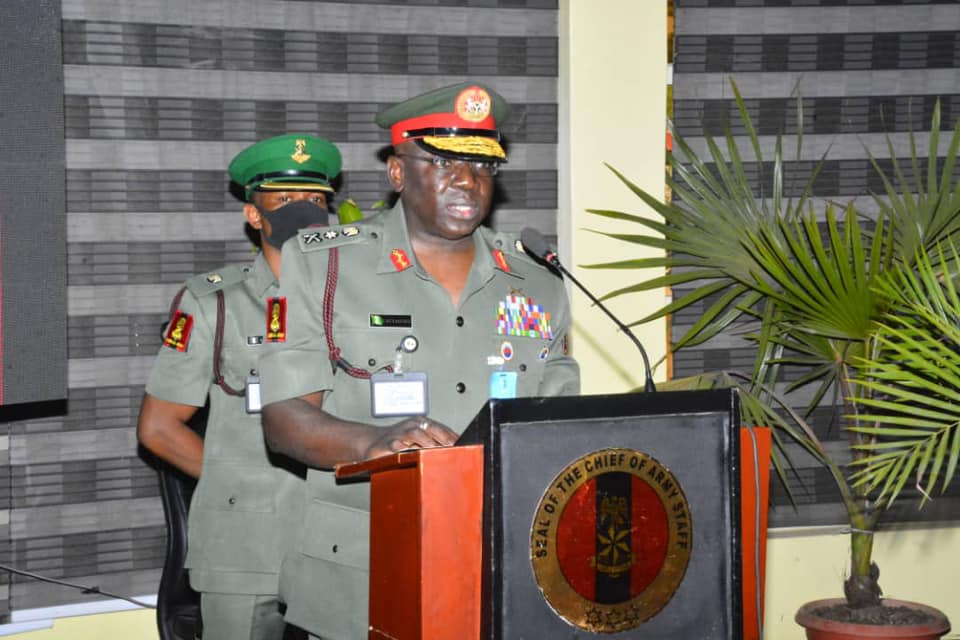
In 2018, President Muhammadu Buhari approved the release of $1 billion for the procurement of security equipment to fight Boko Haram insurgents, but the complaints of lack of weapons by soldiers persisted.
In March, Babagana Monguno, national security adviser (NSA), revealed that funds for arms purchase were missing under the former service chiefs.
Subsequently, in April, Attahiru was invited by the lawmakers over the alleged missing money.
But in the encounter which was not so friendly, Attahiru told the house of representatives ad hoc committee probing arms purchase by the military that he was new in the office and it would be better the lawmakers invite those who managed the affairs of the army before him.
“The summation before you speaks to the report before you, it is an executive summary, it is self-explanatory…because when you demanded for this report you stated specifically the areas from which you wanted this report,” he had told the lawmakers.
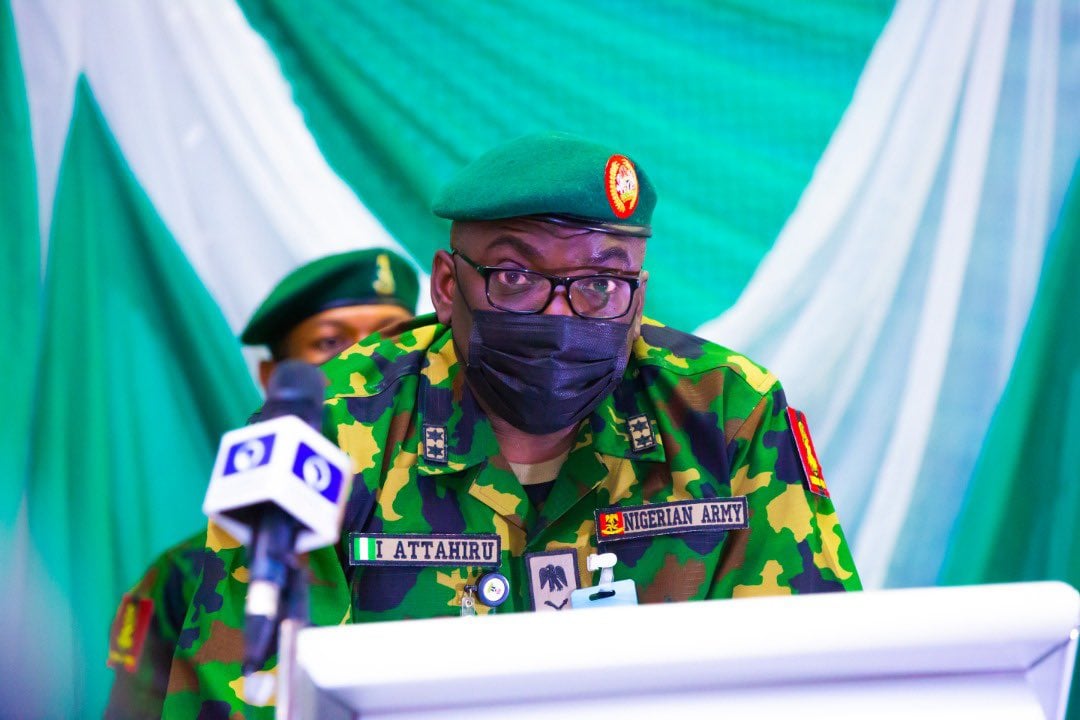
Addressing lawmakers
“You may wish to recall that the COAS took over the mantle of leadership barely two months ago. The period from which you wanted this report, having been summarised in the executive summary explains whatever details you will require. Issue of procurement that you so demand to know was done by specific individuals.
“I will rather you call these individuals to come and explain to you very specific issues. The general issue has been contained in the report and the summary and the other executive summary is so contained, it goes to speak about the entire report and it explains it.”
In another meeting with the senate committee on the army, Attahiru said the army needed more funds to tackle insecurity.
He told the lawmakers that Nigeria is faced with a lot of security challenges that include insurgency in the north-east, banditry in the north-west and parts of north-central, as well as secessionist agitations in the south-east.
“To curb and finally defeat these threats, the Nigerian army requires equipment, weapons, armour fighting vehicles, platforms, and various combat enablers,” he had told them.
“I urge you to, as a matter of urgency, consider these critical needs as you legislate and appropriate funds.
“I will be counting on your support, so that we can efficiently perform our constitutional roles and defeat all our threats.”
US/UK TRAINED OFFICER
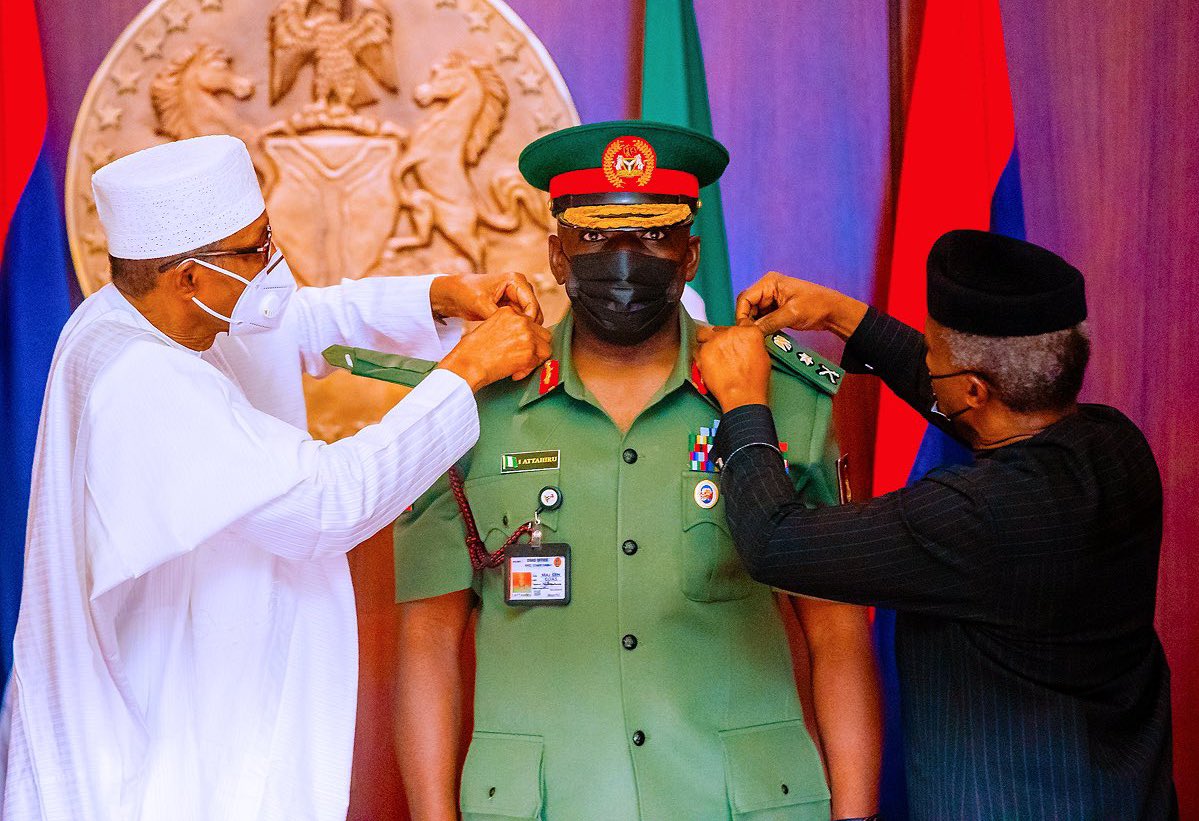
Attahiru being decorated with new rank by Buhari and Osinbajo
Born in Doka, Kaduna North LGA on August 10, 1966, Attahiru attended the Nigerian Defence Academy (NDA), and commenced the cadet training in 1984.
He was commissioned as an infantry officer in the rank of a second-lieutenant with the Nigerian Army in December 1986.
Rising through the ranks, Attahiru commanded various military formations and operations which include 146 battalion (operation Harmony IV) in the Bakassi Peninsula, 13 Brigade (Operation Pulo Shield), 82 division Nigerian Army.
He was also theatre commander of Operation Lafiya Dole.
At different times, he served as deputy director military secretary 2 at the army headquarters, and director of army public relations.
Attahiru had undertaken leadership and security policy courses at the Kennedy School of Government, Harvard University, USA; Graduate School of Media and Communication, Agha Khan University, Kenya; Bournemouth University Disaster Management Center and the Geneva Centre for Security Policy.
He had a master’s degree in strategic management and policy studies from the NDA and master’s in human resources management and development from Salford University in the United Kingdom.
Attahiru who is the 21st chief of army staff will, in the recent time, be the shortest serving chief.
Like they say in the Nigerian military parlance, “soldier go, soldier come”; a new chief is expected to emerge soon from the army hierarchy.







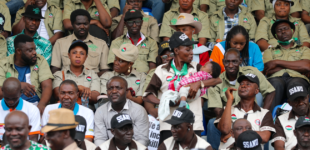



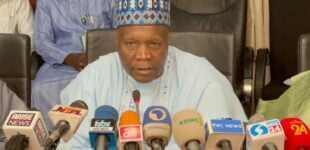

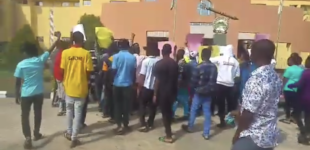

There are no comments at the moment, do you want to add one?
Write a comment